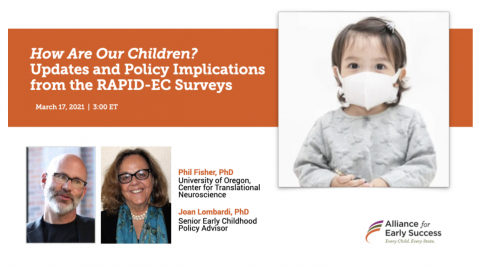COVID-19
Childcare in Canada: Building a stronger post-pandemic system
COVID-19 impacts on city-supported childcare providers and opportunities for future sectoral resilience
More N.L. children get the OK for daycare, but providers, parents ask: where was the preparation?
Child Care Health Consultation Webinar Series: Responding to COVID-19 in Early Childhood Programs

This event has ended.
Child Care Health Consultants (CCHC) can help programs adapt to the COVID-19 pandemic. Join us to review the latest guidance as well as in-person and virtual implementation strategies to help staff, children, and families stay healthy.
Topics for the COVID 19 Response include:
- Current guidance from the Centers for Disease Control and Prevention (CDC)
- Implementation strategies to minimize the risk of virus transmission
- Supportive approaches to working with staff, children, and families
- COVID-19 resources available on the Early Childhood Learning and Knowledge Center
Target Audience
- Child care health consultants (CCHC)
- Head Start health services staff and other service area managers
- Nurses working with any early childhood program
- Child Care resource and referral agency personnel
Childcare services in cities: Challenges and emerging solutions for women informal workers and their children
Webinar: How are our children? Updates and policy implications from the RAPID-EC surveys

Join us for a National Issues>State Action webinar to discuss the findings of the Rapid Assessment of Pandemic Impact on Development-Early Childhood (RAPID-EC) project with University of Oregon Psychologist Dr. Phil Fisher, the project’s director, and Dr. Joan Lombardi, who chairs the National Advisory Group for the project and is former deputy secretary for Early Childhood Development at the U.S. Department of Health and Human Services.
They’ll share the clear — and alarming — findings of the project and discuss it means for states’ early childhood policy agendas.
RAPID-EC has been surveying a national representative sample of families with young children (0-5) since April 2020 to gather clear and actionable information on the needs, health promoting behaviors, and well-being of children and their caregivers during the pandemic.
On this webinar, Dr. Fisher and Dr. Lombardi will share the story about children and families that’s emerging from the data, resources from the project that can enhance state advocates and policymakers, and ideas about what policy responses are needed to respond to the toll the pandemic is taking on these families.
